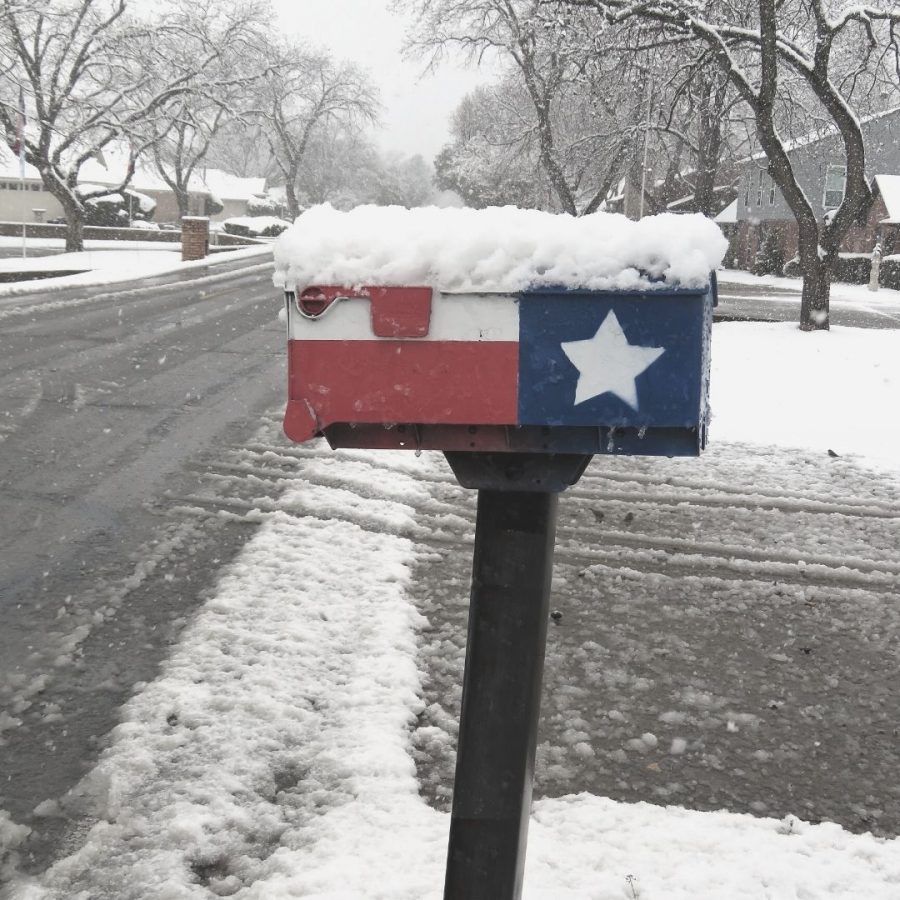Texas Snow Storm Unveils Disproportionate Statewide Need
As the second most impacted state by hurricanes, Texans are not strangers to weather emergencies. It’s safe to say most have a ritual in preparing for the effects of a storm: stocking up on essentials at the supermarket, making sure all necessary electronics are charged and filling cars with gas. However, this routine did not prepare Texans for the aftershocks of Winter Storm Uri, the official name of the snowstorm that arrived on Feb. 14.
The snowfall was not the sole cause of the cataclysmic power outages and food shortages. The combination of the well-below-freezing temperatures after the snow and the lack of infrastructure to withstand extreme cold weather throughout Texas led President Biden to implement a major disaster declaration. Although it is reassuring that this declaration will release federal aid to those in need, it is important to focus on the profile of the citizens in Texas who felt the greatest loss as a result of this weather crisis. It’s not hard to believe that the gap in wealth and status would rear its head in a time of need, but it was shocking to observe the silence of the privileged as millions of their fellow citizens were left to fend for themselves in a once-in-a-generation disaster. The handling of Winter Storm Uri by state leaders was disdainful and distressing, clearly led by those who could not be bothered to protect their neighbors.
Winter Storm Uri was not a particularly heavy snowfall, and Texans have certainly seen worse. In 1929, southeast Texas faced a whopping 26 inches of snow in just 24 hours, which is the current record for most snow in the state. However, what makes Winter Storm Uri different from that record breaking storm is the temperature decrease that followed. While the 1929 storm only lasted about two or three days before reaching temperatures in the 60s and 70s, Uri did not see temperatures above freezing until six to 10 days later, according to the National Weather Service. This extreme cold has had extreme consequences for Texas home and business owners, with the primary problem being the widespread power outages. According to the New York Times, “More than 4.5 million Texas homes and businesses were without power, as utilities made staggered cuts to avoid longer-term disruption. Power has slowly come back online as the weather has warmed, but many Texans continue to experience rolling outages.”
Texas’ power is not managed and sourced via federally managed regional power grids, but instead is the only state-operated power grid. The state’s power plants, operated and regulated by a non-profit organization entitled the Electric Reliability Council of Texas, failed quickly. Natural gas, coal and nuclear plants, along with wind turbines, were all swiftly deactivated, unable to sustain the extreme temperatures following the storm. These widespread power outages undoubtedly caused the brunt of the chaos and upset felt by most Texas residents. Without heat, pipes burst, causing homes to flood and families to huddle together for warmth. People desperate for alternative energy and heat sources have fallen victim to carbon monoxide poisoning. In addition, some counties are facing water and gasoline shortages. In a state that boasts about its independence and supposed self-sufficiency, Texas had a difficult time ensuring its citizens’ confidence in its abilities to protect them.
With millions stranded without access to basic life necessities, one would think that state representatives would have prepared a strategy for recovery and relief from the storm prior to its arrival. This was not the case, and the effects of the storm were unfairly distributed among citizens, worsening tension between state leaders and their constituents. Lower income neighborhoods have been struggling disproportionately. With the inability to adequately prepare for the storm and the preexisting financial strain caused by the COVID-19 pandemic, these communities never had a fair chance at protecting themselves from what turned out to be a deadly storm. Housing in these lower income neighborhoods is not built with efficient insulation or sturdy pipes, considering even the wealthiest neighborhoods endured a difficult outage. In addition, the independent electricity market in Texas is completely deregulated. Consequently, prices for electricity fluctuate with the needs of different communities, leaving a possibility for extreme inflation in electric bills for poorer households who have already suffered disproportionately. The lack of leadership in this natural disaster recovery is appalling, and it has shown that the hierarchy of wealth outweighs the well-being of people in need. According to the New York Times, “experts and community groups say that many marginalized communities were the first to be hit with power outages, and if history serves as a guide, could be among the last to be reconnected. This is particularly perilous, given that low-income households can lack the financial resources to flee to safety or to rebound after the disruption.”
In this time of vulnerability for Texans, it doesn’t help that everyone is competing for the same limited resources. In spite of that, it seems that the most beneficial impact has been initiated from within the community. Mutual aid groups and crowdfunding have been the unsung heroes for Texas citizens after the snowstorm. In addition to larger nonprofit organizations who responded promptly after Uri, dozens of mutual aid groups such as the Houston Food Bank, Mutual Aid Houston, Austin Mutual Aid and North Texas Rural Resilience have all been filling the gaps in need on the ground.
While it is empowering to see people come together in a time of need, this should not be what it takes to recover. In a state that emphasizes self-sustainability, why are its people having to fight for bare necessities such as food, water and electricity? The tenacity and fellowship between Texans speaks volumes when compared to the absence of leadership in the handling of this Winter Storm Uri.
Michela Fahy, FCRH ’23, is a humanitarian studies major from Cedar Grove, N.J.








































































































































































































